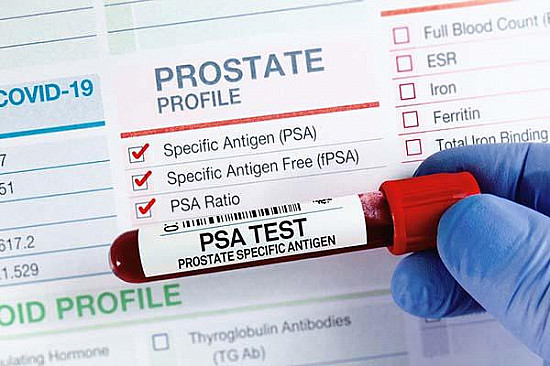In search of better ways to find and treat prostate cancer

Biomarkers are molecular signatures of both normal and abnormal processes in the body. Here is a more formal definition proposed by a "definitions" working group associated with the National Institutes of Health: "A characteristic that is objectively measured and evaluated as an indicator of normal biologic processes, pathogenic processes, or pharmacological responses to a therapeutic intervention."
Proteins, fragments of proteins, enzymes, DNA, the RNA molecules that "read" DNA—they all can serve as biomarkers. Blood is an ideal source material because it's easy to collect and examine, but biomarkers can also be found in other body fluids, like urine, and in tissue itself. Biomarkers can inform decisions before, during, and after treatment.
More and better biomarkers are needed for many medical conditions but especially for prostate cancer. Too many screenings result in biopsies that might have been avoided. Too many cancers are treated that didn't need to be because they weren't likely to cause any harm. For men who do have prostate cancer that would benefit from treatment, a fuller menu of biomarkers could make it possible to tailor treatment to a man and his cancer so that the therapy becomes more effective.
With rapid advances in analytical methods, the number of newly identified bio- markers for prostate cancer is growing steadily. At least a dozen companies are working on bringing tests for new biomarkers to market. Some of them are designed to improve cancer diagnosis and others to predict which cancers are fast-growing and in need of aggressive therapy. If ultimately successful, they could potentially transform how prostate cancer is detected, diagnosed, and treated. Ideally, they would reduce the frequency of biopsies among men who don't have prostate cancer and help to limit the emotional and financial burdens of widespread screening with PSA. And one day, they may also pinpoint which diagnosed cancers do not need to be treated.
For more on advances in the diagnosis and treatment of prostate cancer, including more details and advice on the PSA debate, read the Annual Report on Prostate Diseases, a Special Health Report from Harvard Medical School.
Disclaimer:
As a service to our readers, Harvard Health Publishing provides access to our library of archived content. Please note the date of last review or update on all articles.
No content on this site, regardless of date, should ever be used as a substitute for direct medical advice from your doctor or other qualified clinician.















